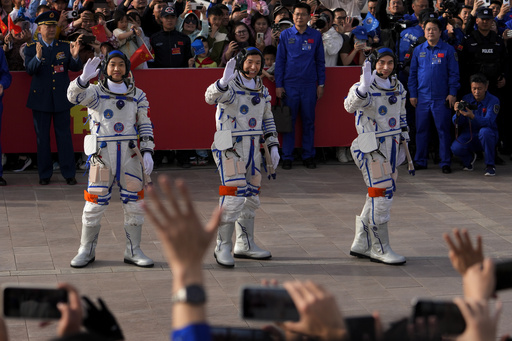
BEIJING — Three astronauts from China made their way back to Earth early Monday after completing a six-month mission aboard the Tiangong space station.
Their capsule made a controlled descent, aided by a parachute, and landed in a remote area of Inner Mongolia at 1:24 a.m.
Upon landing, the astronauts exited the capsule to a scene marked by a fluttering Chinese national flag nearby.
Since its completion two years ago, the Tiangong space station has been a significant part of China’s ambition to take the lead in global space exploration.
In addition to returning lunar rocks and successfully deploying a rover on Mars, China has set its sights on sending human beings to the moon by 2030, which would make it the second country to achieve this feat after the United States.
The returning astronauts had recently welcomed a new crew that will engage in a variety of activities over the next six months, including conducting scientific experiments, performing spacewalks, and installing protective equipment against space debris.
An official from the space agency noted in April that the Tiangong has had to maneuver multiple times to avoid collisions with debris and experienced partial power loss when its solar power cables were damaged by floating refuse, as reported by an official news outlet.
China is recognized as one of the nations contributing to space debris, exemplified by a recent incident in August when a rocket stage broke apart during the launch of the first 18 satellites intended for a communication network similar to the United States’ Starlink.
The Tiangong, translating to “Heavenly Palace,” is currently in orbit around the planet.
So far, only Chinese astronauts have visited the Tiangong space station.
However, a spokesperson from China’s space agency indicated last week that discussions are ongoing about selecting and training astronauts from other countries to participate in future missions, according to local news reports.
While astronauts from various nations have been able to travel to the International Space Station, China remains excluded from that collaboration, a situation largely attributed to U.S. apprehensions regarding the military aspects of China’s space exploration initiatives.
